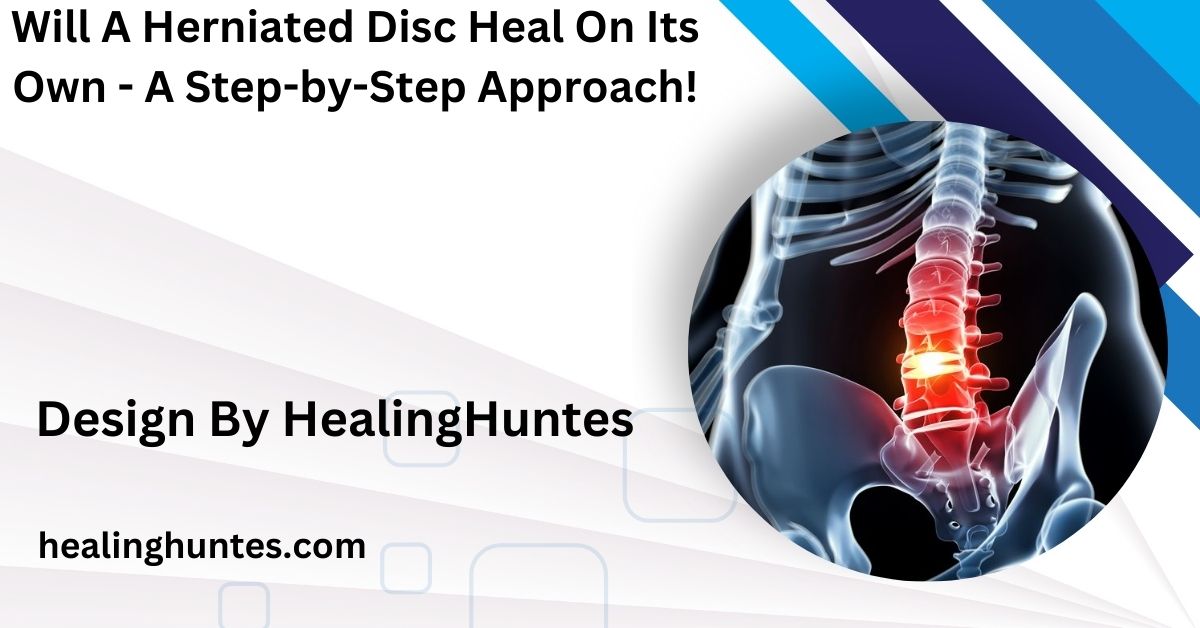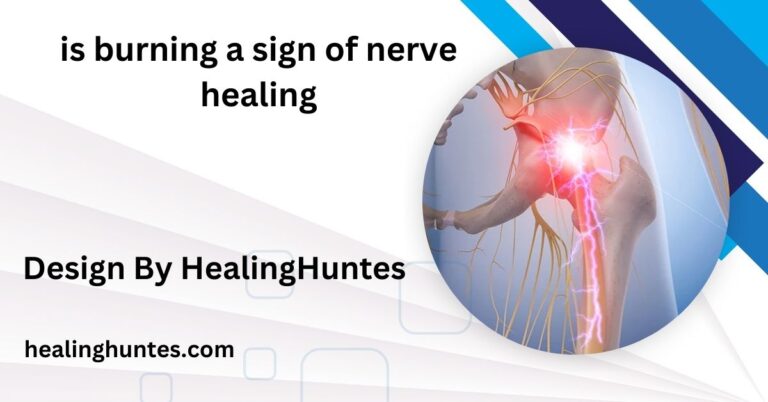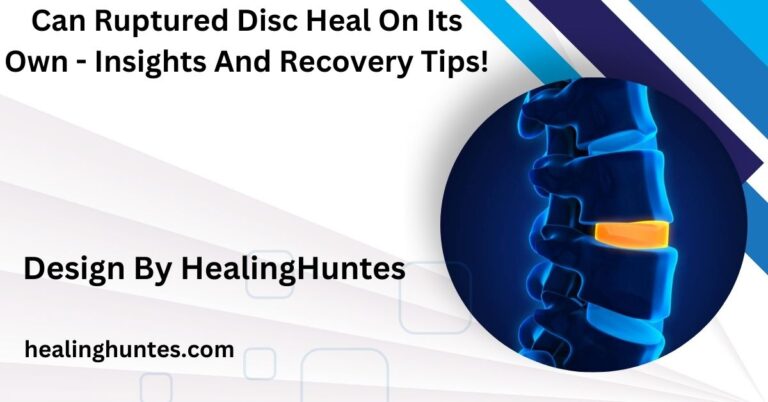Will A Herniated Disc Heal On Its Own – A Step-by-Step Approach!
Yes, a herniated disc can heal on its own over time, particularly with appropriate conservative treatment and lifestyle changes.
In this article, we’ll explore the nature of herniated discs, the healing process, and the treatments available to promote recovery.
Understanding Herniated Discs:
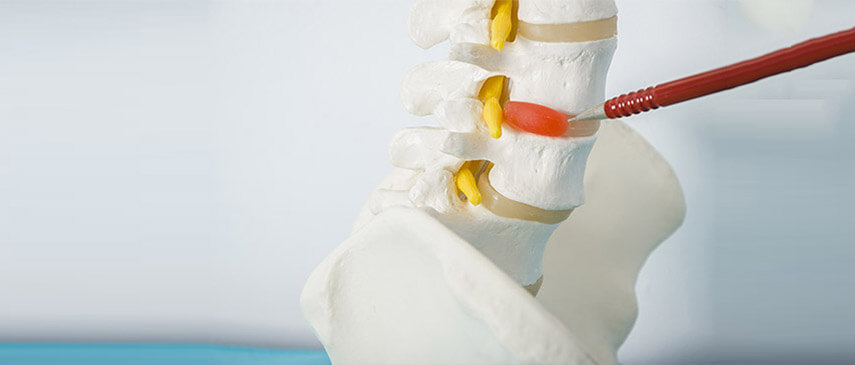
A herniated disc occurs when the soft inner gel-like substance of the spinal disc protrudes through the tough outer layer. This can happen due to age-related degeneration, injury, or repetitive strain on the spine. The herniation can press on nearby nerves, leading to pain, numbness, or weakness in the arms or legs, depending on the location of the herniation.
It’s essential to understand the symptoms and seek medical advice to determine the best course of action.
How Long Does It Take for a Herniated Disc to Heal:
The healing time for a herniated disc varies widely depending on several factors, including the severity of the herniation, the age and overall health of the individual, and the type of treatment received. In many cases, mild to moderate herniated discs may heal within a few weeks to a few months with conservative care.
During this time, the body often reabsorbs the herniated material, alleviating pressure on nearby nerves. However, some individuals may experience chronic pain or recurring symptoms that necessitate further intervention.
Also Read: Is Clinical Pro Heal Serum – An Inclusive Guide!
Factors Influencing Recovery:
Several factors can influence the recovery from a herniated disc, including the patient’s age and overall health, as younger individuals with fewer health issues typically heal faster. Lifestyle choices, such as regular exercise and maintaining a healthy weight, also play a significant role in supporting the healing process. Additionally, the type of treatment received, whether conservative or surgical, can significantly affect recovery time and outcomes.
Age and Overall Health:
Age plays a crucial role in the healing process of a herniated disc. As individuals age, their discs naturally degenerate and become less resilient. Younger individuals generally have a better chance of recovering quickly due to more flexible and robust spinal structures. Additionally, overall health, including pre-existing conditions like obesity or osteoporosis, can affect recovery time.
Lifestyle Factors:
Lifestyle choices can significantly impact the healing of a herniated disc. Regular physical activity strengthens core muscles and improves spinal support. Conversely, sedentary lifestyles can lead to stiffness and worsen symptoms. Maintaining a healthy weight reduces pressure on the spine, facilitating recovery.
Treatment Approach:
The approach taken to treat a herniated disc is paramount in determining the recovery timeline. Conservative treatments such as physical therapy, chiropractic care, and medication can help alleviate symptoms and support healing. In more severe cases, surgical intervention may be necessary to relieve pressure on the nerves and restore function.
Conservative Treatments for Herniated Discs:
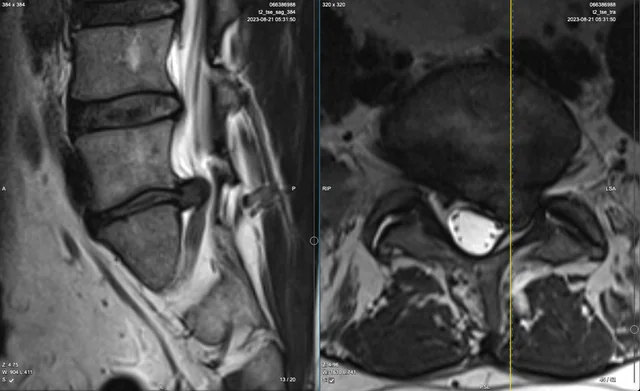
Conservative treatments for herniated discs focus on relieving pain and promoting healing without surgery. Common approaches include physical therapy, which helps strengthen the back and improve flexibility, reducing pressure on the affected disc. Pain management strategies, such as over-the-counter medications, corticosteroid injections, and heat or cold therapy, are also essential in alleviating discomfort and enhancing mobility.
Physical Therapy:
Physical therapy is a common treatment for herniated discs. A trained therapist will develop a tailored exercise program focusing on strengthening the core muscles and improving flexibility. These exercises help stabilize the spine and reduce pressure on the affected area, promoting healing over time.
Medications:
Over-the-counter pain relievers, such as ibuprofen or acetaminophen, can help manage discomfort associated with a herniated disc. In some cases, doctors may prescribe stronger medications or muscle relaxants to alleviate severe pain and facilitate movement during recovery.
Chiropractic Care:
Chiropractic treatment involves spinal manipulation and adjustments to improve spinal alignment and relieve nerve pressure. This hands-on approach can provide relief and help restore mobility, although patients should consult their physician before seeking chiropractic care, especially if symptoms are severe.
When Is Surgery Necessary:
While most herniated discs heal with conservative treatment, surgery may be required if symptoms persist or worsen. Surgical options include discectomy, which involves removing the herniated portion of the disc, and spinal fusion, where two or more vertebrae are permanently joined to stabilize the spine.
Indications for surgery typically include:
- Severe and persistent pain that limits daily activities.
- Weakness or loss of bladder/bowel control
- Symptoms that do not improve with conservative treatment over several months
A thorough discussion with a healthcare professional can help determine the best course of action based on individual circumstances.
Also Read: When Your Nose Piercing Heals When Can You Change It – An Inclusive Guide!
Preventing Future Herniated Discs:
Preventing future herniated discs involves a combination of lifestyle changes and proper body mechanics. Regular exercise, particularly strength training and flexibility workouts, helps build core muscles that support the spine, reducing the risk of injury. Maintaining good posture while sitting, standing, and lifting heavy objects is crucial in minimizing undue stress on the back.
Regular Exercise:
Engaging in regular exercise is essential for maintaining a healthy spine. Strengthening the muscles that support the spine can help prevent herniated discs and other injuries. Focus on exercises that enhance flexibility and core strength, such as yoga or Pilates.
Posture Awareness:
Maintaining proper posture while sitting, standing, and lifting can significantly reduce the risk of developing a herniated disc. Be mindful of your posture during daily activities, especially if you have a sedentary job that requires long hours of sitting.
Weight Management:
Maintaining a healthy weight is vital for reducing pressure on the spine. A balanced diet rich in nutrients and regular exercise can help achieve and sustain a healthy weight, minimizing the risk of herniated discs and other spinal issues.
FAQ’s
1. Can a herniated disc heal completely?
Yes, many herniated discs heal on their own with proper care and conservative treatment.
2. How long does it take for a herniated disc to heal?
Healing time can range from a few weeks to several months, depending on the severity of the herniation and treatment received.
3. What are common symptoms of a herniated disc?
Symptoms may include pain, numbness, or weakness in the arms or legs, along with localized back pain.
4. Is surgery always necessary for a herniated disc?
No, most herniated discs respond well to conservative treatments, but surgery may be needed for severe cases.
5. What can I do to prevent a herniated disc?
Regular exercise, maintaining a healthy weight, and practicing good posture can help prevent herniated discs.
Conclusion
In summary, while a herniated disc may heal on its own, the timeline and process depend on various factors, including age, health, and treatment approaches. Many individuals find relief through conservative treatments, and lifestyle modifications can help prevent future occurrences. If you experience symptoms of a herniated disc, it’s essential to consult with a healthcare professional to determine the most appropriate treatment plan for your specific situation.
